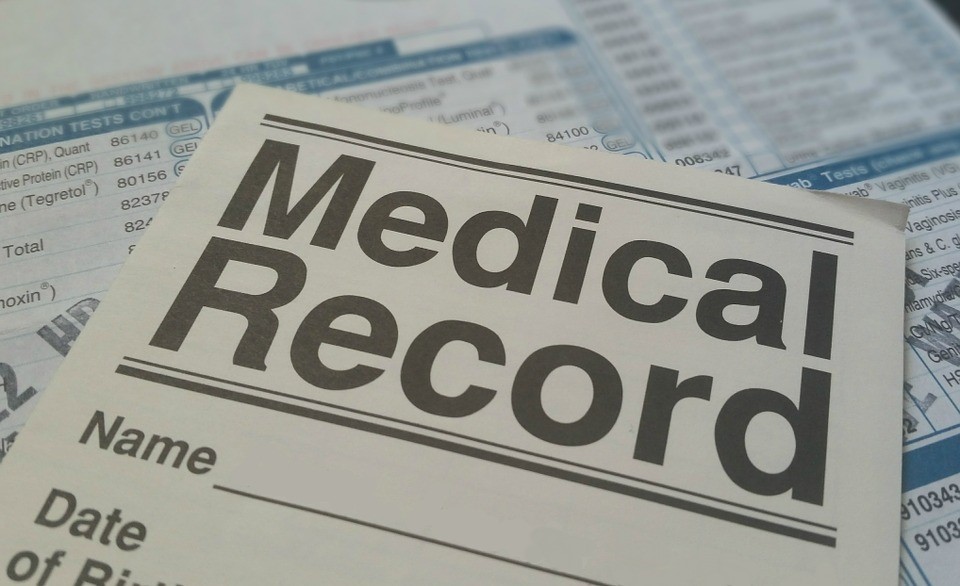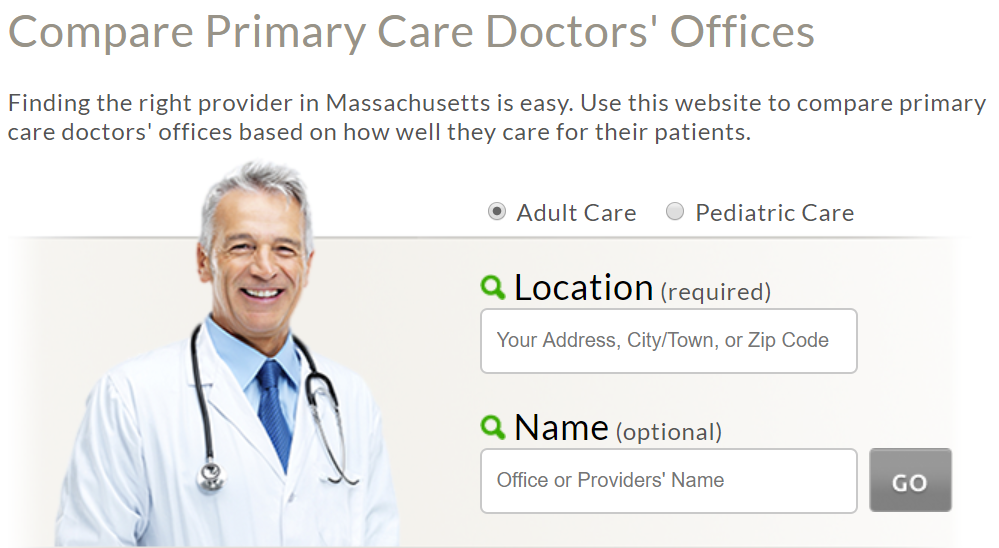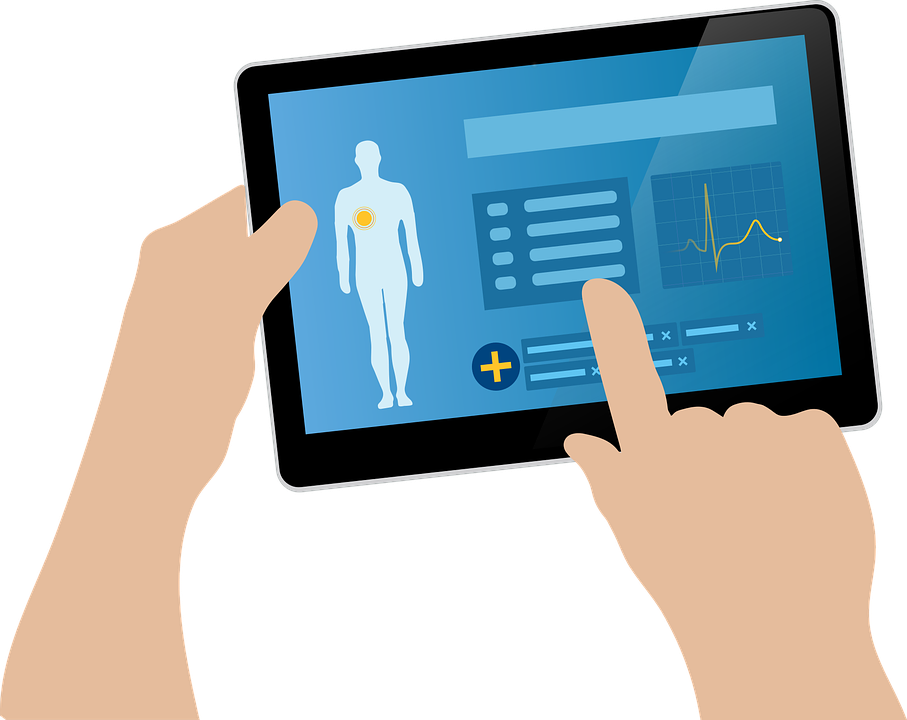Resources for Empowered Patients
Actions to Help You Manage Your Care
Members of MHQP’s Consumer Health Council – experienced patient advocates and activists – have created this website to share their knowledge and insights with other patients. The site lists the tools, guidelines, and information you may need to manage your health, interact with clinicians and the healthcare system, and find answers to questions you may have. The articles and links included under each topic will help you become a more empowered and engaged patient/consumer of healthcare services.
SOCIAL DETERMINANTS OF HEALTH
1Degree
One Degree Website
One Degree is an interactive tool that helps you find free, life-improving resources related to food, health, housing, employment, and more near you.
2-1-1
2-1-1 Webpage
This resource helps individuals obtain information about receiving assistance in the event of a crisis, emergency, or natural disaster.
Aunt Bertha
Aunt Bertha Webpage
This interactive tool helps individuals find free or reduced cost services related to food, housing, or transportation.
HelpSteps
Massachusetts 211 HelpSteps Webpage
This interactive tool provides information on how to access social services near you related to food, housing, and medical care. This site also provides a survey to recommend services tailored to your specific needs.
BREAST CANCER
B-RST
Breast Cancer Genetics Referral Screening Tool
This screening survey helps individuals determine if they have a strong genetic risk for breast cancer based on their family history.
Should I Continue with Mammogram Screening? (For Women 75-84)
Beth Israel Deaconess Medical Center Pamphlet
This shared decision making tool helps women age 75-84 to decide if they would like to continue with mammograms by calculating average risk.
Racial and Ethnic Differences in Breast Cancer (English) (Spanish)
Susan G. Komen Foundation Website
A pamphlet from the Susan G. Komen Foundation about the differences in incidence rates for different races and ethnicities.
Breast Cancer and Risk (English) (Spanish)
Susan G. Komen Foundation Website
A pamphlet from the Susan G. Komen Foundation about the differences in risk for different ethnic groups.
Breast Cancer Screenings and Follow-Up Tests (English) (Spanish)
Susan G. Komen Foundation Website
Pamphlet from Susan G. Komen about the different types of breast cancer screenings work and what type of follow-up tests may be offered.
Breast Self Awareness (English) (Spanish) (Portugese) (Haitian Creole) (Vietnamese) (Chinese)
This resource, offered in multiple languages from Susan G. Komen Foundation emphasizes the four topics of breast self awareness – knowing your risk, getting screened, knowing what’s healthy for you, and making healthy choices.
Seven Things to Know About Mammograms (English) (Spanish)
American Cancer Society Pamphlet
Webpage from the American Cancer Society about the most important things you need to know before you get a mammogram screening.
Ductal In Situ Breast Cancer
National Comprehensive Cancer Network Patient Guidebook
This booklet provides information for patients about ductal in situ breast cancer (DCIS), such as how it is screened and treated, and helps you decide what the best treatment procedures are for you.
Invasive Breast Cancer
National Comprehensive Cancer Network Patient Guidebook
This booklet provides information for invasive breast cancer. This resource describes screening strategies, the three stages of invasive breast cancer, and how to make treatment decisions that are the best for you.
Metastatic Breast Cancer
National Comprehensive Cancer Network Patient Guidebook
This booklet discusses the different types of metastatic breast cancer, how to make the best treatment decision, and provides an index of important words to know.
CERVICAL CANCER
Cervical Cancer Screening
American College of Obstetrics and Gynecology Website
Helpful resource from the American College of Obstetricians and Gynecologists that explains what cervical cancer screening is like and its benefits.
Talking to Your Doctor about Cervical Cancer (English) (Spanish) (Vietnamese) (Portuguese)
Massachusetts Department of Public Health Pamphlet
This resource from the MA Health Department gives you the tools to better talk to your doctor about screening for cervical cancer.
COLORECTAL CANCER
Colorectal Cancer: Catching it Early
American Cancer Society Pamphlet
This resource discusses the stages of colorectal cancer, how to prevent colorectal cancer, and types of screenings that are available.
Guide to Colorectal Cancer Screening
Fight Colorectal Cancer Pamphlet
This resource outlines each of the colorectal cancer screening methods and how often you need to be screened.
ePrognosis Colorectal Cancer Screening Survey
University of California – San Francisco Webpage
This resource from University of California – San Francisco is an interactive decision making tool that takes into consideration a patient’s age, sex, and medical history to determine whether or not the patient is a good candidate for colorectal screening.
A Guide to Colon Cancer Screening (English) (Spanish) (Portuguese)
Massachusetts Department of Public Health Pamphlet
This comprehensive guide from the Massachusetts Public Health Department gives helpful information about what colon cancer is, and how to screen for it.
Test Yourself at Home for Colon Cancer (English) (Spanish) (Portuguese)
Massachusetts Department of Public Health Pamphlet
This resource tells patients how they can get tested for colon cancer from the comfort of their own home.
About Colon Cancer
National Comprehensive Cancer Network Patient Guidebook
This resource provides helpful information regarding colon cancer, such as how cancer affects the function of the colon, the different treatment options for different cancer stages, and how to take care of yourself following treatment.
Guide for Patients About Rectal Cancer
National Comprehensive Cancer Network Patient Guidebook
This resource provides information about rectal cancer screening, the different treatment options, and how to make the best decisions regarding treatment for you.
LUNG CANCER
Is Lung Cancer Screening Right for Me? (English) (Spanish)
American Lung Association Article
This article answers many frequently asked questions about lung cancer screenings, and helps patients determine if screening is right for them.
Patient Screening Guide (English) (Spanish)
The Lung Cancer Project Guide
This guide from the Lung Cancer Project provides comprehensive information for patients about lung cancer screening.
Lung Cancer Screening
National Comprehensive Cancer Network Patient Guidebook
This guidebook provides information of who should get screened for lung cancer, and what happens during and after screening.
Early and Locally Advanced Non-Small Cell Lung Cancer
National Comprehensive Cancer Network Patient Guidebook
This resource provides helpful information regarding lung cancer in the early stages. This guidebook discusses the different treatment strategies and how to make a treatment plan that suits your needs.
Metastatic Non-Small Cell Lung Cancer
National Comprehensive Cancer Network Patient Guidebook
This guidebook provides information about different treatment plans for metastatic lung cancer, and how to make treatment decisions that are the best for you.
Radon – Get the Facts
Commonwealth of Massachusetts Webpage
This article describes the dangers of radon to lung health, and information on how to test for radon in your home, and how to fix elevated levels of the gas.
PROSTATE CANCER
Prostate Cancer Screening: Should I Have a PSA Test?
University of Wisconsin Webpage
This shared decision making tool is meant for men in their 50s and 60s to make an informed decision if they should be getting screened for prostate cancer using a PSA test.
Should I get the PSA Test? (English) (Spanish) (Portuguese) (Haitian Creole)
Massachusetts Department of Public Health
This pamphlet from the MA Public Health department explains to men the benefits and drawbacks from getting the PSA Test.
Get the Latest Information about Prostate Cancer Screening (English) (Spanish) (Portuguese) (Haitian Creole)
Massachusetts Department of Public Health
This resource gives the latest about the different types of prostate cancer screenings.
Early Stage Prostate Cancer
National Comprehensive Cancer Network Patient Guidebook
This guidebook provides information about early stage prostate cancer, how to get screened, and the groups at higher risk for prostate cancer.
Advanced Stage Prostate Cancer
National Comprehensive Cancer Network Patient Guidebook
This guidebook provides helpful advice for those diagnosed with advanced stage prostate cancer, such as the different treatment plans, and how to choose the right treatment for you.
SKIN CANCER
Skin Cancer Prevention (English) (Spanish)
National Cancer Institute Webpage
This resource from the NCI gives ways for patients to prevent skin cancer.
Prevent Skin Cancer (English) (Spanish)
American Academy of Dermatology Association Webpage
This resource provides helpful tips for preventing skin cancer, and has additional information about how to skin self checks, and what treatments are available for skin cancer.
Decision Making Aid for Patients with Melanoma In Situ Over 65
American Society for Dermatologic Surgery Association Brochure
This decision making aid brochure helps patients 65 and older decide what treatment for melanoma in situ is best for them.
Guide for Patients About Squamous Skin Cancer
National Comprehensive Cancer Network Patient Guidebook
This guidebook provides basics regarding squamous skin cancer, different treatment options for regional and local cancers, and how to stay healthy after treatment.
Guide for Patients About Melanoma
National Comprehensive Cancer Network Patient Guidebook
This guidebook provides information on screening tests for melanoma, the stages of melanoma, and how it is treated.
CARDIOVASCULAR HEALTH
What are the Warning Signs of a Heart Attack? (English) (Spanish)
American Heart Association Patient Flyer
This resource educates patients on the signs that may indicate if you are experiencing a heart attack.
High Blood Pressure Treatment Decision Aid Worksheet
Massachusetts General Hospital Decision Sciences Center Worksheet
This decision worksheet helps you to have a productive conversation with your doctor about what treatments and medications are best for managing your high blood pressure.
High Cholesterol Treatment Decision Aid Worksheet
Massachusetts General Hospital Decision Sciences Center Worksheet
This decision worksheet helps you to have a productive conversation with your doctor about what treatments and medications are best for managing your high cholesterol.
DIABETES (TYPE-2) AND PRE-DIABETES
Diabetes Medication Choice Decision Aid
Mayo Clinic Webpage
This decision aid from the Mayo Clinic helps clinicians decide with their patients on what diabetes medication is best for them based on their lifestyle choices.
Living with Diabetes (English) (Spanish)
Association of Diabetes Care & Education Specialists
This webpage hosts many different flyers and sheets in Spanish about how to properly manage your diabetes, and how to prevent it.
Diabetes Treatment Decision Aid Worksheet
Massachusetts General Hospital Decision Sciences Center Worksheet
This decision worksheet helps you to have a productive conversation with your doctor about what diabetes treatment is best for you.
OBESITY AND OVERWEIGHT
Adult Obesity
Centers for Disease Control and Prevention Brochure
This brochure discusses the rise in obesity in adults in America, how being overweight can affect your overall health, and suggests steps to take to live a more healthy lifestyle.
How to use Fruits and Vegetables to Help Manage Your Weight
Centers for Disease Control and Prevention Brochure
This brochure discusses how you can integrate more fruits and vegetables into your diet to manage your weight.
PHYSICAL ACTIVITY
Physical Activity and Your Heart (English) (Spanish)
National Heart, Lung, and Blood Institute Webpage
This resource explains what physical activity is, the benefits of staying active, and tips to start becoming more physically active.
Develop a Physical Activity Plan for You
American Heart Association Webpage
This webpage discusses how to create a safe and beneficial physical activity plan, and provides a log to track your workout regimen.
DIET AND NUTRITION
SNAP Benefits
Commonwealth of Massachusetts Webpage
This webpage gives you information about SNAP benefits, determines your eligibility, and helps you apply for SNAP benefits if you qualify.
Healthy Incentives Program (HIP) for Clients
Commonwealth of Massachusetts Webpage
This webpage gives you information about the Healthy Incentives Program (HIP), which helps those who receive SNAP benefits to gain access to healthy food by finding HIP authorized farmers and vendors.
Apply for the Women, Infants, & Children (WIC) Nutrition Program
Commonwealth of Massachusetts Webpage
This website provides information about who is eligible for the Women, Infants and Children (WIC) program, and how to apply if you qualify.
Farmers Market Nutrition Program
Commonwealth of Massachusetts Webpage
This webpage provides information about the Farmers Market Nutrition program, which gives eligible seniors and WIC families coupons to buy fresh produce at farmers markets across the state.
1Degree
One Degree Website
One Degree is an interactive tool that helps you find free, life-improving resources related to food, health, housing, employment, and more near you.
Commodity Supplemental Food Program: Find your local program
U.S. Department of Agriculture
This webpage provides contact information for the commodity supplemental food programs in every state.
Find Meals when Schools are Closed
U.S. Department of Agriculture
This webpage provides information on where to find free meals for your children when school is not in session.
Heart Healthy Recipes
U.S. Department of Health and Human Services
This website provides hundreds of heart healthy recipes for breakfast, lunch, dinner, and dessert that are also tailored to different cultural groups.
SEXUAL HEALTH AND IDENTITY
Sexual Consent
Planned Parenthood Website
This website discusses what sexual consent is, and how you talk about consent with a sexual partner.
Birth Control Across the Gender Spectrum
Reproductive Health Access Project Brochure
This resource outlines the benefits and drawbacks of birth control options for people across the gender spectrum.
Trans & Gender Identity
The Trevor Project Webpage
This resource provides information about transgender, intersex, and other gender identities.
SLEEP HABITS
Harvard Health Letter: Blue Light has a dark side
Harvard Medical School Article
This article talks about the effects of blue light on sleep, and how you can protect yourself from blue light at night.
Healthy Sleep Tips
National Sleep Foundation Article
This resource provides helpful tips so you can have a more restful night’s sleep.
How Blue Light Affects Your Eyes
ANRRI.com Article
This resource provides information on what blue light is, how blue light affects your eyes, and how to mitigate its effects.
Want to Get Better Sleep? Here’s Everything You Need to Know
BarBend Website
This resource discusses the health risks of lack of sleep, and how to improve your sleeping habits.
TOBACCO, SMOKING, AND VAPING
5-A’s Framework
Agency for Healthcare Research and Quality
This resource explains the 5A’s for intervention: ask, advise, assess, assist, and arrange.
How to Quit Smoking: CDC
Centers for Disease Control and Prevention
This resource provides information, tips, and an app to help quit smoking.
Smoke Free
SmokeFree.gov Website
This site provides information about the dangers of smoking and vaping, and tips and resources for how to quit smoking.
DEPRESSION
SAMHSA National Helpline
Substance Abuse and Mental Health Services Administration
This resource discusses how the National Helpline provides information and referral for substance abuse and mental health treatment, and provides additional resources about mental health.
Depression Support and Advocacy
Mental Health America Article
This resource explains what depression is, the symptoms, and what treatment is available if you are diagnosed with depression.
Depression Medication Choice Decision Aid
Mayo Clinic
This decision aid helps patients decide what antidepressant would be best for them by looking how it would affect weight, sleep, and analyzes cost.
Food vs. Mood: Eating for Physical and Mental Health During COVID-19
Massachusetts General Hospital Webpage
This article discusses the relationship between nutrition and mental health, and how we can alter our diet to improve mood.
The Empowering Neurologist – David Perlmutter, M.D., and Dr. Uma Naidoo
YouTube Video
In this YouTube video from Massachusetts General Hospital, two physicians discuss the relationship between food and mental health, and how a balanced, nutritious diet can contribute to an improved mood.
Depression Treatment Decision Aid Worksheet
Massachusetts General Hospital Health Decision Sciences Center Worksheet
This decision worksheet helps you to have a productive conversation with your doctor about what depression treatment is best for you.
Hispanic & American Mental Health Report & Resource Guide (Spanish)
Help Advisor Webpage
This webpage provides information about mental health disparities between white and Hispanic populations, and resources for mental health treatment.
ANXIETY
Is It Stress or Anxiety?
National Institute of Mental Health Brochure
This brochure discusses the differences between stress and anxiety, how to cope with stress, and provides ways to get help if you are suffering from anxiety.
Social Anxiety Disorder: More Than Just Shyness
National Institute of Mental Health Brochure
This brochure discusses the signs and symptoms of social anxiety disorder, and the different treatment options available.
Food vs. Mood: Eating for Physical and Mental Health During COVID-19
Massachusetts General Hospital Webpage
This article discusses the relationship between nutrition and mental health, and how we can alter our diet to improve mood.
The Empowering Neurologist – David Perlmutter, M.D., and Dr. Uma Naidoo
YouTube Video
In this YouTube video from Massachusetts General Hospital, two physicians discuss the relationship between food and mental health, and how a balanced, nutritious diet can contribute to an improved mood.
Hispanic & American Mental Health Report & Resource Guide (Spanish)
Help Advisor Webpage
This webpage provides information about mental health disparities between white and Hispanic populations, and resources for mental health treatment.
ALCOHOL/SUBSTANCE ABUSE
MA Prescription Dropbox Locations
Commonwealth of Massachusetts Webpage
This document provides a list of locations across Massachusetts where you can safely dispose of unused prescription medication.
Treatment for Alcohol Problems: Finding and Getting Help
National Institute on Alcohol Abuse and Alcoholism Webpage
This webpage describes when it is time to seek help, what treatments are available for alcohol abuse, and additional resources to learn more about treatment near you.
SMART Recovery
Alcohol Rehab Help Webpage
This article describes the SMART recovery four point program, and helps you find a treatment facility near you.
Find Help Fighting Drug and Alcohol Addiction
RehabSpot Webpage
This webpage discusses the difference between inpatient and outpatient rehab treatment, ways to pay for treatment, and how to find facilities near you.
Outpatient Rehabilitation
Alcohol Rehab Help Webpage
This article describes what outpatient rehabilitation looks like, when to seek these services, and how much rehab costs.
Addiction Treatment
Addiction Group Website
This article discusses what addiction treatment is, the different types of treatment, and how to get treatment for you or your loved one.
Alcohol Addiction Rehabilitation Treatment
Addiction Group Webpage
This article provides information about the different types of treatment options for alcohol addiction.
Inpatient Treatment
Addiction Group Webpage
This article describes the types of therapies used in inpatient treatment, the benefits, and costs of this type of treatment.
How Long Does Alcohol Withdrawal Last?
Addiction Group Webpage
This article describes what alcohol withdrawal is, and how to cope with symptoms and obtain help for alcohol abuse.
Live Another Day
Live Another Day believes in equal access to life-saving mental health and substance use resources. This website provides extensive information on the best resources available.
The Summit Wellness Group
Recognizing the signs of drug abuse can save a life. This guide offers an abundance of guidance in recognizing and responding to signs of drug abuse.
Detox & Rehabilitation
Detox Rehab’s webpage
This webpage provides up to date information regarding addiction, substance abuse treatment, and lists of rehabilitation facilities & programs. DetoxRehabs also provides screenings and insurance verification to assist individuals struggling with addiction to find the best treatment options.
SAFETY AND INJURY PREVENTION
Fall Prevention Checklist
Centers for Disease Control and Prevention Brochure
This resource helps you identify and implement safety measures in your home to prevent falls.
A Matter of Balance
Ethos Webpage
This resource discusses how to get involved with a program for seniors to avoid falls in the home.
Traumatic Brain Injury and Concussion Prevention
Centers for Disease Control and Prevention Website
This article gives important information about preventing traumatic brain injuries through proper motor vehicle safety and mitigating the risk of falls.
DIY Home Modifications for Senior Fall Prevention
PrimeWeld Website
Falls are a leading cause of death for older adults and are often preventable. This guide was created to provide simple modifications that can be done in the home to help lower the risk of falls.
VIOLENCE/ABUSE IN THE HOME
Understanding Intimate Partner Violence
Centers for Disease Control and Prevention Webpage
This resource explains what intimate partner violence looks like, and how to get help if you or a loved one is facing violence by a partner.
National Domestic Violence Hotline — 1-800-799-SAFE
National Domestic Violence Hotline Webpage
This webpage provides resources and support for those who may be facing domestic violence.
Domestic Violence During the Pandemic: Resources for Victims and Survivors
MyMove Webpage
This article helps victims and survivors of domestic violence recognize the signs of abuse, how to prepare to leave your abuser, and provides additional support services for when you leave your abuser.
How Victims of Domestic Violence Can Afford Transitional Housing
The Simple Dollar Webpage
This article helps victims of domestic violence develop a plan to escape their abuser by finding support services to find and fund transitional housing.
How to Find Help from Domestic Violence
Safety.com Article
This article guides victims of domestic violence on how to protect themselves, and find support services for finding transitional housing and establishing financial independence.
What is Nursing Home Abuse?
Nursing Homes Abuse Article
This article provides information about the different forms of elder abuse, and how to prevent it from happening to you or a loved one.
SENSORY SCREENING (HEARING AND VISION ASSESSMENT)
Free Glaucoma Screening Resources
Glaucoma Research Foundation Article
This article provides contact information for different organizations that provide free glaucoma screening to those who are eligible.
Finding an Eye Care Professional
Prevent Blindness Brochure
This brochure gives you information about what an eye care specialist does, and how to find the best specialist for you.
Hearing Aids: How to Choose the Right One
Mayo Clinic Article
This article discusses the different types of hearing aids, and advice on how to choose the right one for you.
Hearing Aid Financial Assistance
Hearing Loss Association of America Article
This article provides information about where individuals can receive financial assistance in obtaining hearing aids.
Astigmatism: Causes & Treatment
Vision Center Article
This article describes what astigmatism is, what the symptoms are, and how it can be corrected.
Internet Navigation for the Visually Impaired
Nvision Centers Article
This article provides tips for how the visually impaired can make navigating the web easier with certain built-in tools and downloadable adaptive software.
END OF LIFE PLANNING
CaringInfo
National Hospice and Palliative Care Organization Website
This website provides patients and their caregivers helpful resources and information to be able to make informed decisions about end of life care.
Conversation Starter Kit (English) (Spanish) (Portuguese) (Haitian Creole) (Vietnamese) (Chinese)
The Conversation Project
This guide helps you start having conversations with your loved ones about your wishes for your end of life care.
End of Life Pain/Hospital & Palliative Care Fact Sheet
Massachusetts Pain Initiative Booklet
This booklet includes information about what end of life and palliative care looks like, and the concerns that may arise with pain management at the end of life.
SEXUALLY TRANSMITTED INFECTIONS (CHLAMYDIA, GONORRHEA, SYPHILIS, AND HPV)
Information about Sexually Transmitted Diseases
Planned Parenthood Webpage
This webpage provides information about the different sexually transmitted diseases, such as chlamydia, gonorrhea, and syphilis.
STD Testing: What is Right for You?
Mayo Clinic Article
This resource provides information regarding the different types of STD testing, and the recommended course of action for getting tested.
HIV/STI Counseling, Testing, and Referrals
Fenway Health Webpage
This resource provides information about where to get free or low-cost HIV or STI screening.
HIV
HIV Screening
Centers for Disease Control and Prevention Brochure
This brochure discusses the benefits for getting screened for HIV, and how you can get tested.
Where Can You Get Tested for HIV?
HIV.gov Webpage
This resource provides information on where you can get tested for HIV based on your zip code.
Taking PrEP – A Daily Pill to Reduce Your Risk of Getting HIV
Centers for Disease Control and Prevention Brochure
This brochure provides information about what pre-exposure prophylactic (PrEP) is, who should take it, and tips on how to properly take it.
HIV Testing: Should I Get Tested for the Human Immunodeficiency Virus?
University of Michigan Medicine Webpage
This decision aid helps you to make an informed choice regarding getting tested for HIV.
TUBERCULOSIS (TB)
Get the Facts About Tuberculosis Disease (English) (Spanish) (Vietnamese)
Centers for Disease Control and Prevention Brochure
This brochure discusses how TB is spread, what treatment looks like, and how to protect yourself and others from the disease.
What You Need to Know About the Tuberculosis Skin Test (English) (Spanish) (Vietnamese)
Centers for Disease Control and Prevention Brochure
This brochure discusses the TB test and what to do if you have a positive test.
MOSQUITO AND TICK-BORNE ILLNESSES
Protecting Yourself from Ticks and Mosquitoes
Centers for Disease Control and Prevention Brochure
This resource provides information about tick and mosquito borne illnesses, and how you can protect yourself from being infected.
Tips to Prevent and Treat Bug Bites
American Academy of Dermatology Article
This resource provides information about how to prevent bites from mosquitos and other bugs, and how to treat them.
PRECONCEPTION COUNSELING
Good Health Before Pregnancy: Pre Pregnancy Care
American College of Obstetricians and Gynecologists Webpage
This resource provides information about healthy eating, vitamin intake, STI screening, and more for women who are thinking about becoming pregnant.
Planning for Pregnancy
Centers for Disease Control and Prevention Webpage
This resource provides essential steps for planning to become pregnant, such as seeing your doctor, maintaining a healthy weight and diet, and cease taking any harmful drugs.
Everything You Need to Know about Infertility
Surrogacy Center of Philadelphia Webpage
This resource provides important information about the causes of infertility, and various ways to address it.
OSTEOPOROSIS
Fall Prevention Checklist
Centers for Disease Control and Prevention Brochure
This resource provides a checklist of locations in your home that may cause falls, and how to fix these things in your home to prevent them.
Boning Up on Osteoporosis
American Osteoporosis Foundation Booklet
This resource provides extensive information about what osteoporosis is, who is at risk, and how to improve your bone health.
Osteoporosis: Should I Take Bisphosphonate Medicines?
University of Michigan Medicine Webpage
This decision aid helps patients choose whether or not to take bisphosphonate medicines if they are diagnosed with osteoporosis.
MENOPAUSE MANAGEMENT
Menopause Map
Hormone Health Network Webpage
This interactive site takes you through understand the stages and symptoms of menopause, and takes you through a treatment plan that is right for you.
The Menopause Years
American College of Obstetricians and Gynecologists Webpage
This resource provides answers to frequently asked questions about menopause, such as explaining symptoms of menopause, what hormone therapies might be available, and what you can do to stay healthy.
Menopause: Should I Use Hormone Therapy (HT)?
University of Michigan Medicine Webpage
This shared decision making aid helps women decide whether or not to undergo hormone therapy to manage their menopause symptoms.
COGNITIVE IMPAIRMENT
Memory Care Facilities
Memory Care Facilities Webpage
This website helps you find and sort for memory care facilities that are nearby, affordable, and have the necessary amenities for you.
Mild Cognitive Impairment (MCI)
Alzheimer’s Association Webpage
This resource provides information about the causes and symptoms of mild cognitive impairment, and where you can find additional support for cognitive impairment.
Mild Cognitive Impairment (MCI) Support
Family Caregiver Alliance Webpage
This resource provides information about how to cope with mild cognitive impairment.
Tips for Caring for Individuals with Vision Loss and Dementia
Vision Center Webpage
This resource explains how vision loss affects those with dementia, and provides tips on how to cope.
Patients today are taking a more active role in their health care. The materials in this section highlight the importance of being engaged in your care and help you take the first steps.
EngagedPatients.org
Engaged Patient campaign’s website
This site provides information about the Engaged Patients national campaign to ensure free access to the tools and the resources patients and their loved ones need to be fully informed and participating members of their health care teams. Numerous tools are included.
Patient and Family Engagement
Partnership for Patients Website
This site identifies patients and their families as essential partners in improving the quality and safety of health care for all Americans and points to helpful resources for increased engagement.
How to Be an Engaged Patient or Caregiver
Better Health While Aging Website
This post provides practical suggestions for aging patients and family caregivers to become more engaged in their care.
How to Be an Active Patient
University of Rochester Medical Center Website
This site offers helpful suggestions for being an active patient.
How to Be an Empowered Patient
US News and World Report
This column provides advice from experts about how to advocate for yourself in a hospital.
Questions to Ask Your Doctor
Agency for Healthcare Research and Quality website
This site provides lists of questions to ask your provider before, during, and after your appointment.
- 10 questions you should know
- Questions to ask before your appointment
- Questions to ask during your appointment
- Questions to ask after your appointment
- Build your own list of questions
A Doctor’s Guide to a Good Appointment
A New York Times article
This article is a doctor’s advice for patients and family/caregivers on how to make the most of a medical visit.
Patient Prep Card
Agency for Healthcare Research and Quality website
This site provides a visit preparation card that can be filled in and brought to your visit.
How to Create a Pill Card
Agency for Healthcare Research and Quality website
This site provides a guide to create an easy-to-use “pill card” for those who may forget when to take their different medicines.
Next Steps After Your Diagnosis
Agency for Healthcare Research and Quality website
This site gives you a step-by-step guide as to what to do after you have been diagnosed with a new condition. Next steps after your diagnosis: finding information and support.
Guide to Choosing a Hospital
Medicare.gov website
This official US government booklet explains the steps to find and compare hospitals, discusses why hospital quality is important, and provides information about Medicare and hospital stays.
12 Signs You Should Fire Your Doctor
US News & World Report article
This article discusses the fact that seeing a doctor you’re unhappy with could be bad for your health and explains how to know when to look elsewhere.

Image credit: https://selectinsuregroup.com/health-insurance/
This section covers the options available to various segments of the population. It provides answers to help you as a patient understand health insurance plans that are available. It also helps you understand terminology such as cost of care, covered services, employee health plans, COBRA, co-payments, deductible, and more.
3 Things to Know Before You Pick a Health Insurance Plan
Healthcare.Gov website
This site has general information about different types of health plans and how to select one for you and/or your family. While it is for people who are buying insurance on their own, it gives information that can be helpful for those insured through their employer, Medicaid, or Medicare as well.
How do Deductibles, Co-insurance, and Copays Work?
Blue Cross Blue Shield of Michigan website
This website presents an excellent guide on how to understand health insurance, including what is a deductible and what is a co-pay as well as a lot of information on understanding your benefits even if you do not live in Michigan.
Medicare Advantage (Medicare Part C)
Paying for Senior Care Article
This guide provides information for seniors who are interested in enrolling in Medicare Part C, such as when enrollment periods are, and the costs and benefits of the plan.
Medicare Advantage Plans in Massachusetts
Paying for Senior Care Article
This article discusses the types of Medicare plans in Massachusetts, the eligibility criteria for the programs, and resources for seniors who are on Medicare.
Find Medicare Part D Prescription Drug Plan Coverage
Medicare Plans Patient Resource Center Webpage
This resource discusses the details of what Medicare Part D costs, what type of coverage is available, and what coverage gaps exist with this plan.
Guide to Medicare for People with Disabilities: A Step-by-Step Checklist
RetireGuide Webpage
This resource discusses what disabilities qualify for medicare, how to apply for it, and additional programs that assist those with disabilities.
What is Disability Insurance? Everything you need to know
The Zebra Webpage
This resource discusses the types of disability insurance, the pros and cons of each, and how to determine if disability insurance is for you.
Senior Guide to Medicare
SingleCare Webpage
The actual cost of your healthcare is one of the most complicated and challenging issues that you will face on your healthcare journey. This section contains guidelines and explanations about how to determine your cost of care today and in the future and plan for that. It covers alternative ways for patients to receive care that can be more accessible and affordable and points you to information that helps you understand your health plan benefits.
How to Talk to Your Doctor About Medical Costs
Consumer Reports website
This article discusses why it is important to discuss costs with your providers and how to do so.
Questions That May Save You Money at the Doctor’s – WebMD
WebMD website
This article presents five questions to ask your provider that could be helpful in limiting your health care expenses.
The Challenge of Understanding Health Care Costs and Charges
AMA Journal of Ethics website
This article discusses the challenges of getting to actual costs and some steps that providers can take such as making sure they are providing only needed care.
By Not Discussing Cost Issues, Doctors, Patients May Miss Chances To Lower Out-Of-Pocket Expenses
Kaiser Health News website
This webpage reviews a study published in Health Affairs that explores the ways that doctors communicate with patients that prevent real discussions of costs and can undermine a patient’s health.
Western Shamrock Resources
Western Shamrock Website
This webpage provides information and resources for how to deal with unexpected medical bills, manage a budget, and how to pay off a large debt.
Cost of Rehab
Addiction Group Website
This resource describes the costs of different rehab programs, ways to pay for programs, and the types of insurance coverage for programs.
THE COST OF DRUGS

Providers, insurers call for strong enforcement of drug price transparency
Modern Health Care website
This article reviews the position of providers and insurers on the Center for Medicare and Medicaid’s (CMS) actions to make drug prices transparent and suggests additional actions that should be required such as posting the wholesale acquisition cost and having Medicare pay for physicians to discuss drug costs with patients.
Cost & Value of Medicines | PhRMA
PHARMA website
On this site the pharmaceutical industry discusses the slowdown in medicine cost growth, the rising cost of chronic disease, insurance coverage of medicine, the role of middlemen, and what the industry can do to make medicine more affordable for patients.
- Skip to Examples of Patients Communicating With Medical Providers
- Skip to Communicating With Your Child’s Medical Providers
- Skip to Senior Care
- Skip to Mental Health Care
Communication between you and your clinicians is key to good healthcare delivery. These articles and resources review the importance of productive communication and recommend ways to effectively communicate with your provider. 
Communicating with Your Doctor
University of California San Francisco Health website
The relationship with a doctor is a very personal one, built on communication and trust. This article outlines some things you can do to help build an effective partnership.
Talking to Your Doctor
National Institutes of Health website
This site has videos that discuss how to prepare for your medical appointment, talk openly with your medical provider, and understand your diagnosis and treatment.
Questions to Ask Before, During and After Your Appointment
Agency for Healthcare Research and Quality website
This site gives you a list of questions you may want to ask before, during, and after your visit so that you can be an informed and engagement patient.
Building Your Own Question List
Agency for Healthcare Research and Quality website
This site walks you through the questions to bring to your next appointment based on the purpose of your visit, e.g. to talk about a health problem, to get a new medication.
Getting Ready for Your Ambulatory Care Surgery
Agency for Healthcare Research and Quality website
This site provides information on how to prepare for your surgery, what to expect the day of your surgery, and what to expect on the day of your surgery.
Patient-Centered Care Starts With Patient-Provider Communication
Health Affairs blog
This academic article presents findings from the Health Reform Monitoring Survey that demonstrate the need for improvement in patient-provider communication and suggests strategies for improvement.
EXAMPLES OF PATIENTS COMMUNICATING WITH MEDICAL PROVIDERS

Patients Typing their Own Visit Agenda in an EMR: Pilot in a Safety-Net Clinic
Annals of Family Medicine website
This paper describes a study in a clinic where patients typed their own agenda into the electronic visit note before seeing their clinician. Patients and clinicians agreed that the agendas improved patient-clinician communication.
Cristin Lind: Parenting a Child in Hospital
The BMJ Opinion website
This article is written by a parent of a child with chronic health care needs. Lind describes things she learned to do and ways she became engaged in order to ensure that her child received the right care and that the child’s parents were true partners in the decisions that were made.
Patients and Provider Discuss the Importance of Asking Questions
Agency for Healthcare Research and Quality website
This site has short videos, where patients talk about how simple questions can help you take better care of yourself, feel better, and get the right care at the right time. Doctors and nurses talk about how your questions help them take better care of you and give advice on how you can be an active member of your healthcare team.
Chronic Illness and the Doctor-Patient Relationship
Psychology Today
This article discusses chronic illness and the doctor-patient relationship. Learn how to evaluate and maximize this crucial relationship.
My Family Health Portrait
Center for Disease Control and Prevention website
This website houses My Family Health Portrait, a portal in which you can enter your family health history, learn about risk for conditions that can run in families, and print and save your family health history so you can update it over time.
COMMUNICATING WITH YOUR CHILD’S MEDICAL PROVIDERS

Partnering with your Child’s Provider (In Spanish)
Family Voices.org website
This site has a page called Tips Caring for a Child with Special Healthcare Needs. The page gives information to help parents partner with their child’s health care provider.
Child Well-Visit Planner (In Spanish)
Well Visit Planer website
This site presents a personalized visit guide for your child’s next well-care visit based on national recommendations for parents/guardians of children 4 months to 6 years old.
Health Care Visit Check List for all Children Including Children with Special Health Care Needs
Family Voices Impact website
This site gives information on choosing a provider, preparing for a visit, and what to do during and after the visit to ensure information is shared from you to the provider and from the provider to you.
Concerned about Development? How to Talk with the Doctor
Center for Disease Control and Prevention (CDC) website
This site gives guidelines for getting help for your child when you are concerned about his or her development (how your child plays, learns, speaks, acts, and moves).
Parents’ Guide to Getting Good Care
Child Mind Institute website
The guide on this site takes you through the steps to finding the best professional (or team) to treat your child who has behavioral health or learning problems.
A Guide for Sharing Information about a Child’s Care
Massachusetts Child Health Quality Coalition website
This guide, Communication Matters, provides information that will help to ensure good communication among four pediatric care teams: 1) children, youth, and families; 2) primary care providers; 3) behavioral health providers; and 4) schools.
SENIOR CARE

Talking with Your Doctor: Tips for Seniors Infographic
National Institute on Aging website
This site has an infographic that can be used with older adults to help them get the most out of their medical visits.
Care Plans for Caregivers: The Secret to Confident Caregiving
Aging Care website
This site provides information that you, as a caregiver, can use to create a care giving plan that includes contingencies.
MENTAL HEALTH CARE

Taking Charge of Your Mental Health
National Alliance on Mental Health website
This infographic provides information on how to ask your doctor for a mental health referral, what to ask when meeting a mental health provider for the first time, and how to ask for a new referral if the first is not a good fit.
Parents’ Guide to Getting Good Care
Child Mind Institute website
The guide on this site takes you through the steps to finding the best professional (or team) to treat your child who has behavioral health or learning problems.
Care planning means that you and your primary care physician work collaboratively to determine those actions that will address your specific health needs. The resources available in this section enable you to understand your health issues; why and when you need a care plan; what you should include in your care plan; and how to work with providers on a plan that meets your needs. 
Personal Care Plans: The Secret to Confident Caregiving
Aging Care website
This site provides information that you, as a caregiver, can use to create a care giving plan that includes contingencies.
Mental Health Care Plans
Victoria, Australia State Government website on health
This article outlines the reasons for a mental health care plan, and how to prepare one.
Cristin Lind: Parenting a Child in Hospital
The BMJ Opinion website
This article is written by a parent of a child with chronic health care needs. Lind describes things she learned to do and ways she became engaged in order to ensure that her child received the right care.
Deciding on a treatment plan
Agency for Healthcare Research and Quality website
This site provides information on the steps you should take after your diagnosis to decide on a treatment plan.
Your Discharge Planning Checklist
Center for Medicare and Medicaid (CMM) website
This Medicare site has a checklist for patients and their caregivers who are preparing to leave a hospital, nursing home, or other care setting.
Patients today want access to their medical records and other health information so that they are fully informed and empowered to manage their health issues appropriately. These links and article discuss the many ways and programs available to patients to help them attain that access. 
How to Request Your Medical Records
Journal of the American Health Information and Management Association webpage
This webpage provides information on the steps you should take to request your medical records and the laws around medical record sharing.
How do I access my medical records?
Medical Records.com website
This article explains: ways to access your personal medical records in writing, release of personal health records – rights and fees, paperless medical records versus hard copies, and sensitive information.
How to Get Access to Your Hospital Records
US News & World Report website
As a patient, you’re entitled to your health information. This article tells you the steps you should take to get your hospital medical record.
Personal health records and patient portals
Mayo Clinic website
Personal health records and patient portals are powerful tools for managing your health. This article explains what each is and how to create a personal health record.
How to Get Copies of Your Medical Records: Understanding the Process, Cost, and Your Rights
Verywell Health website
This article reviews how to get copies of your medical records, including understanding the process, cost, and your rights.
Your Health Information, Your Rights: Video
Office of the National Coordinator for Health IT YouTube video
This site has a series of videos with information on how to get your health records.
Where is My Medical Record?
Where is My Medical Record? Website
This website describes what medical records are, what your rights are to medical records, and how to access them.
Most patients have a need to see not only a primary care doctor, but other clinicians and specialists who can address all of their healthcare needs. Care coordination is a team effort that involves ensuring that all of your healthcare providers have access to your full health information records, test results, diagnoses, treatments and issues, so that when you are receiving care, the provider is aware of your other issues and needs and can take them into consideration.

Defining Care Coordination
Agency for Healthcare Research and Quality website
Care coordination means different things to different people. This US government site created a broad definition, a visual, graphic definition, and scenarios to help illustrate care coordination in the absence of a consensus definition.
What is Care Coordination?
New England Journal of Medicine Catalyst website
This article presents the elements of care coordination and provides examples of good coordination.
The Promise of Care Coordination: Transforming Health Care Delivery
Families USA website
This PDF gives a clearly written overview of what care coordination is, why it is important and how it should work. It includes several case studies.
Redefining long-term care from a person-centered perspective
McKnight’s Long Term Care News
This article discussed how technology and data can be used to support care coordination and strengthen patient experience.
Should Pharmacists Be Part Of Your Care Team?
OPEN MINDS
This articles asks: What are the enhanced roles that pharmacists can play? How do they add value?
PEDIATRIC CARE COORDINATION

Cristin Lind: Parenting a child in hospital
The BMJ Opinion website
This article is written by a parent of a child with chronic health care needs. In the article Lind describes things she learned to do to ensure good coordination, including understanding the roles of the professionals on the care team, considering herself as part of the care team and having a say regarding who is on the care team.
A Guide for Sharing Information about a Child’s Care
Massachusetts Child Health Quality Coalition website
This guide, Communication Matters, provides information that will help to ensure good communication among four pediatric care teams: 1) children, youth, and families; 2) primary care providers; 3) behavioral health providers; and 4) schools.
Everything You Need to Know About the ACE Kids Act
Children’s Hospital Association Website
The Advancing Care for Exceptional Kids (ACE Kids) Act was passed to ensure excellent care for children with complex medical care get the access they need. This webpage discusses more details about the new law.
Shared Decision-Making is the process in which clinicians and patients work together to make decisions about treatment, procedures, and medications necessary to address your health issues. This section outlines the importance of shared decision making and the ways in which it happens.

Shared Decision Making Fact Sheet
HealthIT.gov website
This fact sheet from the National Learning Consortium’s Advancing America’s Health Care website defines and outlines the importance of shared decision making.
AHRQ Ambulatory Care Improvement Guide: Shared Decision Making
Agency for Healthcare Research and Quality website
This government website presents the different aspects of shared decision making, including what providers and patients can do to increase shared decision making.
Shared Decision Making
HealthTalk and YouthHealthTalk.org website
The British National Health Service explores what is involved in shared decision making in this article.
The SHARE Approach
Agency for Healthcare Research and Quality website
The SHARE Approach includes a five-step process for shared decision making. The benefits and risks of options are explored through dialogue about what matters most to the patient.
What is Shared Decision Making?
MGH Health Decision Sciences Center website
This article from Massachusetts General Hospital defines shared decision making, explains why it is important, and presents tools to use to engage in shared decision making.
Care That Fits
Care That Fits – Mayo Clinic Webpage
This website includes patient decision aids and shared decision-making techniques that you might want to discuss with your doctor.
Decision Aids to Facilitate Shared Decision Making in Practice
Cincinnati Children’s Hospital website
This site provides tools for patients and parents that explain the pros, cons, and trade-offs of medically reasonable options, with a focus on the option that reflects families’ preferences.
A-Z Inventory: Patient Decision Aids
Ottawa Hospital Research Institute website
The A to Z Inventory of Decision Aids is designed to help you find a decision aid to meet your needs. It contains up-to-date and available decision aids.
The Option Grid Decision Aids
EBSCO Health website
This company’s website describes its Options Grid Decision Aids that help providers and patients choose the health option that’s right for each patient.
EXAMPLES OF SHARED DECISION-MAKING

Patients Typing their Own Visit Agenda in an EMR: Pilot in a Safety-Net Clinic
Annual of Family Medicine website
This paper describes a study where clinic patients typed their own agenda into the electronic visit note before seeing their clinician. Patients and clinicians agreed that the agendas improved patient-clinician communication, enhancing care by engaging patients and giving clinicians an efficient way to prioritize patients’ concerns.
Cristin Lind: Parenting a child in hospital
The BMJ Opinion website
This article is written by a parent of a child with chronic health care needs. Lind describes things she learned to do and ways she became engaged in order to ensure that her child received the right care and that the child’s parents were true partners in the decisions that were made.
- Skip to Reviewing Your Doctors
- Skip to Publicly Available Results From Patient Experience Surveys
- Skip to Filing Complaints About Your Provider
Patient feedback can help improve the quality of care providers deliver and it can make providers aware of changes they can make to improve their practice. This section provides tips and suggestions on how to give and get feedback on your experience when seeing your providers.
REVIEWING YOUR DOCTORS

How to Write an Online Review of Your Doctor
Verywell health website
This article discusses when you should post a review of your doctor and how to post responsibly.
Eight Tips for Writing Great Customer Reviews
Trust Pilot website
This site provides good general information on how to write reviews that will be listened to. It is not health care specific but provides some good guidelines in an infographic that summarizes the main points.
How to Rate and Review Your Doctor
CareDash.com website
This article gives tips on how to rate and review your doctor.
PUBLICLY AVAILABLE RESULTS FROM PATIENT EXPERIENCE SURVEYS

Healthcare Compass MA
Massachusetts Health Quality Partners website
Finding the right primary care doctor in Massachusetts is easy. Use this website to compare primary care doctors’ offices based on how well patients rate them on how they care for their patients.
Survey of Patients’ Experiences
Medicare.Gov website
This site gives information on the Medicare surveys of hospitals and providers along with results for each state.
FILING COMPLAINTS ABOUT YOUR PROVIDER
Should You Complain to Your Doctor?
Verywell health website
This article provides information on deciding when providing feedback will be productive and how to go about it in a balanced and most productive manner.
How to Complain or Provide Feedback to Your Doctor
Verywell health website
This article provides information on how to present your feedback to increase the likelihood that you will get positive results.
How to File a Complaint About a Doctor
Verywell health website
This site gives information on how and where to file a complaint about a doctor.
The Beryl Institute: Patient Experience Policy Forum
The Beryl Institute Website
This site describes the Beryl Institute’s Patient Experience Policy Forum, a coalition of those who want to give a greater voice in health care policy to those working to improve the patient and family experience.
It is often overwhelming when you have been a patient in the hospital and are released to go home. In this section you will find articles and guidelines about what you need to know as you leave the hospital and how to get the appropriate follow up care. 
A Guide to Understanding the Hospital Discharge Process and Providing Care to Patients Post-Hospitalization
Home Care Assistance.com website
This document describes hospital discharge planning and who is involved. It also has several useful tools that can be used to create a full plan for what happens after you or your family member leaves the hospital.
Hospital Discharge Planning: A Guide for Families and Caregivers
Family Caregiver Alliance National Center on Caregiving website
This article defines a discharge plan and discusses the role of the caregiver and other supports that are available at discharge.
Like everything else today, healthcare, too, is dependent on digital tools such as the Internet, and smartphone apps, in order to function efficiently and provide the capabilities you need as a patient to get the right assistance. This section includes detailed discussions about what digital tools are available for patients, how they are used and why they can be critical to full, comprehensive care management. 
What to Look for in a Patient Portal
Athena Health website
This site reviews the features of patient engagement, how the use of patient portals helps to achieve engagement, and what the portal should contain.
Personal health records and patient portals
Mayo Clinic website
This site explains the differences between personal health records, electronic health records, and patient portals, describing how the latter is a powerful tool for managing your health.
New Patient Engagement Guidelines Stress Electronic Tools
Information Week IT Network website
This site discusses the patient engagement framework and emphasizes the use of patient generated data ranging from symptom assessment and care experience surveys to shared decision-making.
Patient Engagement and Behavioral Insights – What People Want Is Health
New England Journal of Medicine Catalyst website
This article discusses the use of technology and creating feedback loops to keep patients doing what is good for their health.
How Patient Portals Are Increasing Engagement & Improving Outcomes
Healthcare Information and Management Systems Society (HIMSS) website
This brief article notes that the Cook County Health and Hospital Systems in Chicago was able to use their patient portal to help many patients with chronic conditions who struggled to keep up with their bloodwork and frequently missed appointments.
Get My Health Data
Get My Health Data website
This site shows how patients and their loved ones can get the information needed to better manage their health using online access and communication tools.
How Telehealth Can Expand Community Clinic Access and Specialist Capacity
Health Affairs (blog)
This article discusses how telehealth can expand community clinic assess and specialty capacity.
As a patient, one of your best sources of information about a specific health condition is other patients. This section provides information on how social media connects patients with each other and with clinicians, allowing them to discuss both common and rare health issues together in a community of similar needs for better outcomes. 
Social Media in Health Care: The Benefits, Challenges, and Opportunities
Hootsuite.com website
This site has a guide for health professionals on the use of social media in health care to promote awareness, encourage patient engagement, and increase the spread of accurate health messaging that patients might find interesting as well.
Rare Connect
Rare Connect.org website
This is an easy to use platform where rare disease patients, families, and patient organizations can develop online communities and conversations across continents and languages.
Mayo Clinic Connect
Mayo Clinic.org website
Mayo Clinic Connect is an online community where you can share your experiences and find support from people like you. You can also read Mayo Clinic expert blogs and take part in educational events.
Inspire: Health and Wellness Support Groups and Communities
Inspire.com website
A site for those with chronic health needs where you can join with many others who understand what you’re going through and are making important decisions about their health.
Patient Communities: A Started List
e-Patient Dave.com website
This site has a list of online communities for various conditions (e.g., Crohn’s Disease, diabetes, etc.)
Patients Like Me
PatientsLikeMe.com website
This digital health learning system uses the most advanced technologies to help you better understand wellness, aging, and disease. You will gain access to information on different conditions, tools, information, and connections – to people like you.
The healthcare system is complex and it is important that you engage with the system. Hospitals and some physician groups have patient councils to help them consider new programs and address issues as they arise. How to engage with institutions and administrative programs, such as PFACs, is discussed in this series of articles and links.
A Patient and Family Advisory Council for Quality: Making Its Voice Heard at the Memorial Sloan Kettering Cancer Center
New England Journal of Medicine Catalyst website
This article describes why the Memorial Sloan Kettering Cancer Center (MSK) PFAC for Quality (PFACQ), has been so active and effective given that many PFACs become underused and undervalued over time.
Consumer Advancing Patient Safety
CAPS website
A consumer led collaboration has developed this guide to help patients, their families, and health professionals in primary care settings work together as partners to promote improvements in the safety and quality of care.
PATIENT ENGAGEMENT IN RESEARCH

Patient Engagement Best Practices Resource Document
Brigham and Women’s Hospital website
The Patient-centered Comparative Effectiveness Research Center (PCERC) created this guide to how to implement the patient engagement process within patient-centered outcomes research (PCOR).
EXAMPLES OF EXISTING PFACS
Patient and Family Advisory Councils (PFACs)
The Health Care for All website
On this site you can read each Massachusetts hospital’s annual PFAC report.
Dana-Farber: Patient and Family Advisory Councils
Dana-Farber Cancer Institute website
This site describes the Patient and Family Advisory Councils (PFACs) at Dana-Farber. There are separate councils for adult care (Adult Patient and Family Advisory Council, or PFAC) and pediatric care (Pediatric Patient and Family Advisory Council, or PPFAC).
The Johns Hopkins Hospital: Patient and Family Advisory Council
The Johns Hopkins Medicine website
This webpage provides an overview of the Johns Hopkins Hospital PFAC.
New research indicates that patients with strong social supports and family engagement are more compliant in their chronic care self-management plans. 
IMPORTANCE OF CAREGIVING
Social and Emotional Support and its Implications for Health
National Library of Medicine National Institutes of Health website
This academic article summarizes recent research findings from selected publications focusing on links between social support and physical health.
Social Support for Health: An Increased Role in Health Care?
Peers for Progress.org website
This site discusses several articles that highlight a new understanding of the importance of social supports for good health and a need for a better defined role for social supports in the healthcare system.
Social Support: Taking Charge of Your Health & Wellbeing
University of Minnesota website
This page discusses the importance of social supports for good health outcomes and provides information on different forms of social support.
Health as a Family Affair
New England Journal of Medicine website
This article discusses the importance of family caregivers and both the pressures and rewards of being a family caregiver as well as the value of considering the family as a whole in clinical decisions and treatment plans for the patient.
GUIDANCE FOR CAREGIVERS

Social and Emotional Support and its Implications for Health
National Library of Medicine National Institutes of Health website
This academic article summarizes recent research findings from selected publications focusing on links between social support and physical health.
Social Support for Health: An Increased Role in Health Care?
Peers for Progress.org website
This site discusses several articles that highlight a new understanding of the importance of social supports for good health and a need for a better defined role for social supports in the healthcare system.
Social Support: Taking Charge of Your Health & Wellbeing
University of Minnesota website
This page discusses the importance of social supports for good health outcomes and provides information on different forms of social support.
Health as a Family Affair
New England Journal of Medicine website
This article discusses the importance of family caregivers and both the pressures and rewards of being a family caregiver as well as the value of considering the family as a whole in clinical decisions and treatment plans for the patient.
Saying Less and Doing More: How to Be a Friend to a Friend Who’s Sick Can Be Harder Than It Sounds
New York Times website
This article reviews a book by Letty Cottin Pogrebin, in which the author gives advice, based on personal experience and that of others, about how to truly be helpful to friends who have serious illnesses.
Today’s Caregiver
Caregiver.com website
This site has information, support, and guidance for family and professional caregivers.
Caregiver Support Articles
Next Avenue.org website
This site has a variety of caregiver support articles.
13 Secrets that Make Caregiving Easier
Agingcare.com website
This site provides information that can be helpful to caregivers as they struggle with their responsibilities every day.
How to Be a Great Caregiver
US News and World Report
An oncologist (cancer doctor) provides information in this article to help you be a good caregiver for someone with a chronic illness.
Family Caregiving – Finding Caregiver Support and Making Caregiving More Rewarding
HelpGuide.org website
This article details tips and organizations that can help families learn how to excel at family caregiving.
9 Mistakes Adult Siblings Make When Parents Are Aging, Sick, and Dying
US News and World Report
In this article, Francine Russo discusses transitions that occur when parents are aging, sick, and dying. She points out nine ways that adult siblings make mistakes when attempting to navigate this “new life crisis.”
Engaging Patients and Families: Vital, Rewarding, and Challenging
Engaging Patients.org website
This article describes a writer’s experience with the healthcare system after her 90-year-old father fell ill.
A Guide for Sharing Information about a Child’s Care
Massachusetts Child Health Quality Coalition website
This guide, Communication Matters, provides information that will help to ensure good communication among four pediatric care teams: 1) children, youth, and families; 2) primary care providers; 3) behavioral health providers; and 4) schools.
A Place for Mom
A Place for Mom website
This site has articles on accessing senior housing and getting resources for loved ones including those with dementia.
Caregiving at Home: A Guide to Community Resources
Family Caregiver Alliance website
This website gives information about the Family Caregiver Alliance, a community-based nonprofit organization that provides a public voice for caregivers, and gives information on care giving resources, supports, and advocacy.
What You Can Expect from Commonwealth Caregivers
Commonwealth Caregivers.com website
Commonwealth Caregivers is a private home care services organization in the Boston area, focused on providing customized care. This link shows a list of the services and supports provided by the organization.
Family Caregiving
AARP website
This site has the AARP comprehensive guide to family caregiving; with links to a detailed guide, tips, community and local resources, medical tips, explanations of legal procedures, and more.
Care Plans for Caregivers: The Secret to Confident Caregiving
Aging Care website
This site provides information that you, as a caregiver, can use to create a care giving plan that includes contingencies.
7 Signs of Caregiver Burnout
Senior Lifestyle
This article defines caregiver burnout and lists seven signs that you might be experiencing caregiver burnout.
Help for Managing Multiple Medications
John Hopkins Medicine
This site provides separate modules of information including caregiving for seniors and managing multiple medications.
57 Must-Know Caregiver Tips, Stats and Facts
Medicare Plan Finder website
This webpage offers 57 tips, statistics, and facts for caregivers.
Senior Guide to Mental Health During Coronavirus (COVID-19)
Medicare Advantage webpage
This article reviews forms of support during self-quarantine, isolation, or a stay-at-home order to help improve seniors’ mental stability and reduce fear.
Finding Assisted Living in Massachusetts
Caring.com’s Resources for Finding Assisted Living Communities
This site provides resources for seniors and their families in choosing an assisted living community that aligns with their needs. There is information regarding financial assistance, laws and regulations, and a tool to find assisted living communities closest to you.
What is Assisted Living?
Information about Assisted Living from Caring.com
This site provides important information about who assisted living is for, amenities found in different assisted living communities, the difference between assisted living and other options for senior care, and key signs of when it is right to start thinking about an assisted living option. There is also a tool to find contact information and quotes for communities near you.
A Guide to Medicare
Caring.com’s Medicare Guide
This site provides basic information regarding Medicare. Some topics covered in this article are how to enroll in Medicare, the different programs included in Medicare, and what services and medical care are provided in each program.
Financial Planning for Caregivers of Seniors Suffering Memory Loss
Interest.com webpage
This guide helps caregivers prepare for the financial decisions involved when caring for a loved one experiencing memory loss. The guide also prepares caregivers with expectations for the potential costs, provides tips on how to manage a senior’s finances, and lists resources for caregivers who need additional support caring for their loved one.
How to Become Part of the Senior Caregiving Village
Google Doc Article
This document provides information to help seniors stay connected and aid each other through the common struggles of aging. Resources on this document for seniors include how to stay safe at home, how to take care of their physical and mental health, and how to effectively manage finances.
Massachusetts Assisted Living & Home Care Costs
Paying for Senior Care webpage
This page is intended to aid residents of Massachusetts in understanding the costs associated with assisted living facilities, adult day care, and home care throughout the state. A number of programs that offer assistance in caring for seniors, as well as payment options are also explored.
Guide to Bedroom Fall Prevention
My Slumber Yard Website
This resource provides information for seniors explaining the conditions that put them at higher risk for falling out of bed, and gives tips on how to secure their bed to prevent bedroom falls.
How to Prevent and Deal with Falls for Seniors
Best Mobility Aids Website
This informational article gives information for seniors on what causes in-home falls, how to prevent them, and suggests the best technology in case of a fall.
How to Prevent Caregiver Burnout
Best Mobility Aids Website
This article gives information for caregivers on what caregiver burnout is, and how to prevent it from happening.
Best All-Terrain Mobility Scooters of 2020
This article explains what an all-terrain mobility scooter is, the aspects of what to look for in a high quality scooter, and provides recommendations for the best scooters on the market.
A Caregiver’s Guide for Family and Loved Ones
Premier Nursing Academy Article
This comprehensive guide gives new caregivers tips on how to be effective in helping their family members and friends. This guide discusses important information about how to prepare for the caregiving role, how to prevent burnout, and provides more caregiving resources.
Addiction Resources
Addiction Group Article
This guide provides a Frequently Asked Questions guide regarding addiction treatment, as well as a list of resources for meetings and groups for treatment and counseling.
Home Modifications When Moving an Elderly Parent
Coverage.com Article
This article gives suggestions for modifications in hallways, bedrooms, and bathrooms to make when moving an elderly family member into a new home. This article also discusses extra precautions to take, and the benefits of making these modifications.
Birth Injury Resources
BirthInjuryGuide Website
This website gives information about what a birth injury is, the different types of injuries that can occur to a child, and offers legal resources and referrals for parents with children affected by birth injuries.
Fall Home Maintenance Checklist for Seniors
Reviews.com Article
This article discusses how to prepare the indoor and outdoor portions of your home for the fall season so you can remain safe.
Assisted Living Resources
SeniorGuidance Website
This webpage provides helpful information about assisted living communities, and how to find one that suits your needs that is in a location near you.
CAREGIVER RESPITE
Taking care of YOU
Family Caregiver Alliance website
This site discusses the importance of caring for yourself and what you can do as a caregiver to take care of yourself, noting that the person you care for will benefit, too.
Caregiver Burden: Help Carrying the Load
US News and World Report
This article discusses the importance of stepping aside to take a break and provides options to lighten the load.
Getting Paid by Medicaid for Caring for a Family Member
www.medicaidlongtermcare.org
This resource provides information about how family members and other loved ones can be compensated for their caregiving efforts through multiple Medicaid programs.
- Skip to Definitions Related to Patient Engagement
- Skip to Strategies to Improve Patient Engagement
- Skip to Communications and Education
- Skip to Patient and Family Advisory Councils (PFACs)
- Skip to Cost of Care
- Skip to Health IT and Patient Engagement
- Skip to Having Difficult Conversations
 Engagement solutions have been helping providers boost patient experience, improve the health of populations, and lower the cost of delivering care.
Engagement solutions have been helping providers boost patient experience, improve the health of populations, and lower the cost of delivering care.
DEFINITIONS RELATED TO PATIENT ENGAGEMENT
Patient Engagement v Patient Experience
New England Journal of Medicine Catalyst website
Adrienne Boissy, a practicing neurologist and The Chief Experience Officer of Cleveland Clinic Health, differentiates and defines patient engagement and patient experience.
The Imperative to Promote Collaborative Consumer Engagement
Robert Wood Johnson Foundation website
The site links to an article in the American Journal of Managed Care that describes the lesson from the RWJF Aligning Forces for Quality initiative: achieving a meaningful definition and shared understanding of consumer engagement is a critical step to make care more efficient, affordable, effective, and patient-centered.
Improving Quality Health Care: The Role of Consumer Engagement (RWJF)
Robert Wood Johnson Foundation website
A RWJF issue brief on the role of consumer engagement in improving the quality of care that the U.S. health system delivers to patients.
STRATEGIES TO IMPROVE PATIENT ENGAGEMENT
Engaging Patients and Families in Their Health Care
Agency for Healthcare Research and Quality(AHRQ) website
To help you and your patients get the most out of your time together, AHRQ offers these free resources that you can use with your team and share with your patients.
5 Elements of a Successful Patient Engagement Strategy
Athena Health
This article discusses of elements of a successful patient engagement strategy.
Strategy 1: Working with Patients and Families as Advisors
Agency for Healthcare Research and Quality website
This resource is tested and evidence-based to help hospitals work as partners with patients and families.
What is Patient Engagement?
Healthcare Information and Management Systems Society (HIMSS) website
This webpage provides information around how to implement patient engagement strategies and how to optimize them.
Patient and family engaged care – going beyond tactical buzzwords
Boston Medical Journal editorial
This editorial describes, in positive terms, the framework for building and sustaining patient and family engaged care.
Patient Engagement: Driving Behavior for Better Health
New England Journal of Medicine Catalyst website
A collection of original content on patient engagement from the NEJM Catalyst.
Blog – HealthWare Systems
HealthWare Systems blog
The article provides tips for managing online patient reviews while avoiding HIPAA (Health Insurance Portability and Accountability Act) violations to help you improve your online reputation and patient satisfaction.
Preparing for a Doctor’s Appointment: 6 Tips for Your Patients
HealthWare Systems blog
This blog post provides six tips for doctors to provide to their patients to prepare for a doctor’s appointment. Patient preparation for doctor’s appointments improves patient engagement, produces better health outcomes, saves doctors time, keeps appointments on schedule, and improves the revenue cycle.
Inside the patient journey: Three key touch points for consumer engagement strategies
Deloitte website
This webpage provides three key touch points for consumer engagement strategies.
COMMUNICATIONS AND EDUCATION
Patient-Centered Care Starts With Patient-Provider Communication
Health Affairs blog
This blog asserts that improving communication between patients and their providers is crucial to better meet patients’ needs and improve patient outcomes. Recent data from the Health Reform Monitoring Survey (HRMS) demonstrates the need for more progress to be made in patient-provider communication and suggest strategies for improvement.
Nine Ways to Gather Great Patient Feedback
Physician’s Practice slideshow
This slideshow describes nine ways to gather patient feedback. Gathering and valuing patient feedback can help improve the quality of care physicians provide, and it can make physicians aware of changes they can make to improve their practices.
Patient Education Improves Diabetes Self-Management Outcome
Patient Engagement HIT website
This article indicates that self-management programs that include patient education and participant input are helpful in driving outcomes in chronic care management. It reviews data from a case study on diabetes care published in the American Journal of Managed Care.
PATIENT AND FAMILY ADVISORY COUNCILS (PFACs)
Forming a Patient and Family Advisory Council
American Medical Association’s Ed Hub website
This document describes 8 steps to form and get to work with your patient and family advisory council.
COST OF CARE

By Not Discussing Cost Issues, Doctors, Patients May Miss Chances To Lower Out-Of-Pocket Expenses
Kaiser Health News website
This webpage reviews a study published in Health Affairs that explores the ways that doctors communicate with patients that prevent real discussions of costs and can undermine a patient’s health.
HEALTH IT AND PATIENT ENGAGEMENT

Health IT PlayBook: Patient Engagement
The Office of the National Coordinator for Health Information Technology website
This website is a tool for healthcare providers, staff, administrators, and others who want to leverage health IT to engage patients in their health and care.
7 ways to improve patient access to medical record
Fierce Healthcare website
This article reviews seven ways provides can create patient-centered records, making it easier for patients to request and manage their own health data.
Digital Health Tools: How to Keep Patients Engaged
Rendia website
This article discusses steps to take to attract patients to patient portals or digital patient education programs and keep them actively engaged.
3 Ways Social Media in Healthcare can Improve Patient Engagement
Patient Engagement HIT website
This webpage reviews 3 ways social media in healthcare can improve patient engagement.
5 Ways Cleveland Clinical improved its Patient Engagement Strategies
Health IT News website
Authors of this article point to five key changes in how patients interact with the organization that have led to dramatic improvements in the patients’ experience.
HIMSS’ Health IT Pulse
Health IT Pulse website
This website provides up-to-date articles focused on improving health through information and technology.
Communication and Optimal Resolution (CANDOR) Toolkit
Agency for Healthcare Research and Quality website
The article describes the CANDOR process: a process that healthcare institutions and practitioners can use to respond in a timely, thorough, and just way when unexpected events cause patient harm.
Addressing Equity in Telemedicine for Chronic Disease Management During the Covid-19 Pandemic
NEJM Catalyst article
This article discusses the disparities in access to care for vulnerable populations, particularly with respect to telemedicine that the coronavirus crisis exposes. It highlights an opportunity, as payers and providers are temporarily embracing expanded use of video visits, to establish practices that will mitigate inequities now and prevent future disruption of chronic disease management.
HAVING DIFFICULT CONVERSATIONS
Having Difficult Conversations: The Advanced Practitioner’s Role
Journal of Advanced Practice Oncology article
In this case report of a 43-year-old woman with metastatic breast cancer, authors model the use of various strategies available for the advanced practitioner to help make these difficult conversations as productive, relevant, and emotionally safe for the patient as possible.
End-of-Life Discussions: A Tool for the “Difficult Conversations”
Professional Case Management journal article
To support case managers, CCMC is making available a resource toolkit to help case managers and other health care professionals learn how to talk about end-of-life wishes and engage in other “difficult conversations.” The End of Life Conversation Project Toolkit is available at no cost, via the CCMC Case Management Body of Knowledge (CMBOK), at http://www.cmbodyofknowledge.com. It is a collection of resources from the Commission and from The Conversation Project, a collaboration with the Institute for Healthcare Improvement.
Telehealth Basics
ATA webpage
The website reviews the benefits of telehealth, services provided by telehealth, and commonly asked questions.
The Ultimate Telemedicine Guide
eVisit webpage
This article is for those who want to understand all intricacies of this highly dynamic and fascinating telemedicine field.
What is Telemedicine?
Vsee webpage
This article includes: telemedicine definition, difference between telemedicine and telehealth, history of telemedicine, benefits of telemedicine, shortcoming of telemedicine, types of telemedicine services, and more.
How Does Telemedicine Work?
WebMD webpage
This article answers the following questions: What is telemedicine? Who uses it? How does telemedicine work? What telemedicine services can I use?
E-Doctors: Virtual Visits Give Patients Options
WebMD webpage
This news article describes a patient’s experience with using telehealth.
The Rise of Telemedicine in the Age of Virtual Healthcare
Medium.com webpage
This article states that the need for telemedicine has become increasingly clear in a climate of isolation and lockdowns.
How to Plan for Your Telephone or Video Visit (FAQs)
Open Notes webpage
This article reviews frequency asked questions on planning for your telephone or video visit.
How to Receive Virtual Medical Treatment While Under Quarantine
AllConnect Website
This website provides information about how to access virtual visits with your doctor, what to expect from a telehealth visit, and how to prepare for your first virtual visit.
Calming Computer Jitters; Help for the Elderly Who Aren’t Tech-Savvy
Washington Post article
This articles describes some of the barriers faced by and solutions for older adults who are trying to become tech-savvy.
- Skip to General Information About Pain
- Skip to Sickle Cell Disease Pain Management
- Skip to Chronic Back Pain Management
- Skip to Safe Use of Opioids
- Skip to Chronic Jaw Pain Management
- Skip to Pregnancy Pain Management
- Skip to End of Life Pain
- Skip to How Caregivers Can Help Manage Pain
- Skip to Cost of Pain Management
GENERAL INFORMATION ABOUT PAIN
Massachusetts General Hospital Pain Resources
Massachusetts Pain Initiative Webpage
This webpage contains a catalogue of the Pain Information Newsletters, provided by Massachusetts General Hospital.
Pain Management Best Practices
U.S. Department of Health and Human Services Booklet
This booklet provides information on how the clinical best practices to treat pain by categorizing the different types of pain management medications, and how best to treat pain in certain areas of the body.
Pain Management Book Reviews
Massachusetts Pain Initiative Webpage
This webpage includes reviews of a selection of pain management books, and provides information on the target audiences and strengths of these books.
General Pain Fact Sheet
Massachusetts Pain Initiative Booklet
This booklet explains a general overview of what pain is, who may suffer disproportionately from chronic pain, and provides more resources to learn more.
Pain Resources for Patients
U.S. Pain Foundation Webpage
This webpage has many different infographics and handouts about a multitude of different topics, such as facts about chronic pain, how to read over the counter medication labels, and how to create your own pain management plan.
Resources for Living with Pain
International Association for the Study of Pain Webpage
This webpage provides many links to resources from different organizations on how to manage chronic pain.
Chronic Overlapping Pain Conditions
Chronic Pain Research Alliance Patient Guide
This patient guide provides information on the best practices on how to manage chronic overlapping pain.
SICKLE CELL DISEASE PAIN MANAGEMENT
Roadmap for Future Research Directions into Sickle Cell Disease Pain Self-Management
Massachusetts Health Quality Partners (MHQP) and the Greater Boston Sickle Cell Disease Association (GBSCDA) came together to develop this roadmap for future patient-centered outcomes research and comparative effectiveness research (PCOR/CER). This roadmap offers stakeholder-identified directions and insights to guide potential research into sickle cell disease (SCD) pain self-management.
CHRONIC BACK PAIN MANAGEMENT
Low Back Pain: Should I have an MRI?
University of Michigan Webpage
This decision aid helps you to make an informed choice on whether or not to get an MRI if you are experiencing chronic low back pain.
Low Back Pain: Should I Have a Spinal Manipulation?
University of Michigan Webpage
This decision aid helps you to make an informed decision on whether or not to have a spinal manipulation for chronic low back pain, and what other options may be available to you.
Low Back Pain: Should I Try Epidural Steroid Shots?
University of Michigan Webpage
This decision aid helps you to make an informed decision on whether or not to begin to take epidural steroid shots for chronic low back pain, and what other options may be available to you.
Lumbar Spinal Stenosis: Should I Have Surgery?
University of Michigan Webpage
This decision aid helps you to make an informed choice on whether getting surgery for lumbar issues is best for you.
Back Pain Action Plan Decision Aid Worksheet
Massachusetts General Hospital Health Decision Sciences Center Worksheet
This decision aid helps you to make an informed decision with your doctor on what treatment plans are right for you to manage your back pain.
SAFE USE OF OPIOIDS
Medicines to Treat Chronic Pain
American Board of Internal Medicine Webpage
This resource explains the different types of treatments to use for chronic pain, and discusses the dangers and proper uses of opioids.
Safe Use of Opioids
Massachusetts Pain Initiative Flyer
This resource explains best practices on how to utilize pain with an opioid prescription, such as notifying a loved one about the prescription, and how to safely handle them.
CHRONIC JAW PAIN MANAGEMENT
Temporomandibular Disorder: Should I Have Surgery for Jaw Pain?
University of Michigan Webpage
This decision aid helps you to make a decision on whether or not to get surgery for jaw pain, or to get other treatments.
PREGNANCY PAIN MANAGEMENT
Pregnancy: Should I Have an Epidural During Childbirth?
University of Michigan Webpage
This decision aid helps you to make an informed choice on whether or not to utilize an epidural during childbirth, and what the pros and cons may be.
Medications for Pain Relief During Labor and Delivery
American College of Obstetricians and Gynecology Webpage
This resource answers many frequently asked questions about pain management during labor and delivery, and discusses which medications and treatments are best.
END OF LIFE PAIN
End of Life Pain/Hospital & Palliative Care Fact Sheet
Massachusetts Pain Initiative Booklet
This booklet includes information about what end of life and palliative care looks like, and the concerns that may arise with pain management at the end of life.
HOW CAREGIVERS CAN HELP MANAGE PAIN
Caregivers & Pain Fact Sheet
Massachusetts Pain Initiative Booklet
This booklet provides information for caregivers about how to manage the pain of their loved ones, and gives additional resources to learn more.
COST OF PAIN MANAGEMENT
Cost of Pain Fact Sheet
Massachusetts Pain Initiative Booklet
This booklet includes information regarding the high cost of pain, how pain affects Americans, and provides additional resources to learn more.
This section provides links to comprehensive lists of common healthcare and health insurance terms, as well as medical acronyms. 
Health Speak: A Guide to Medical Acronyms
Massachusetts Health Quality Partners website
This acronym dictionary provides you with a short list of common abbreviations that healthcare professionals often use. As patients are given greater access to their electronic health records and even the physician’s notes in those records, it is critically important that these medical acronyms are completely transparent.
FH Glossary
Fair Health website
Found in Fair Health’s consumer website, this resource provides definitions and information on an array of medical terms.
Glossary of Health Insurance Terms
Medical Mutual website
This list defines many common healthcare insurance terms you might not know. Knowing these terms can help you choose a plan that meets your needs.




